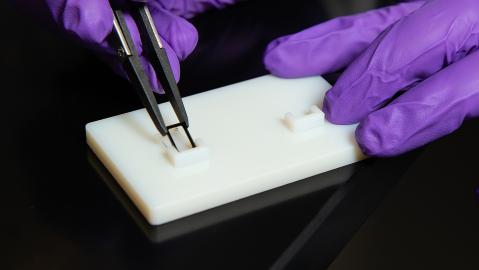
Draper collaborates with academic, commercial and government partners to develop and deliver biological solutions in critical application areas via synthetic biology.
- Human health and medicine (e.g., bioprocessing technology for engineered cell-based therapies)
- Chemical and energy production
As genetic engineering advances so does the need for advanced biosecurity, detection and containment. To solve complex problems and improve lives our synthetic biology staff work at all levels—from whole organisms down to proteins and DNA—to understand and capitalize on unique biological capacities for
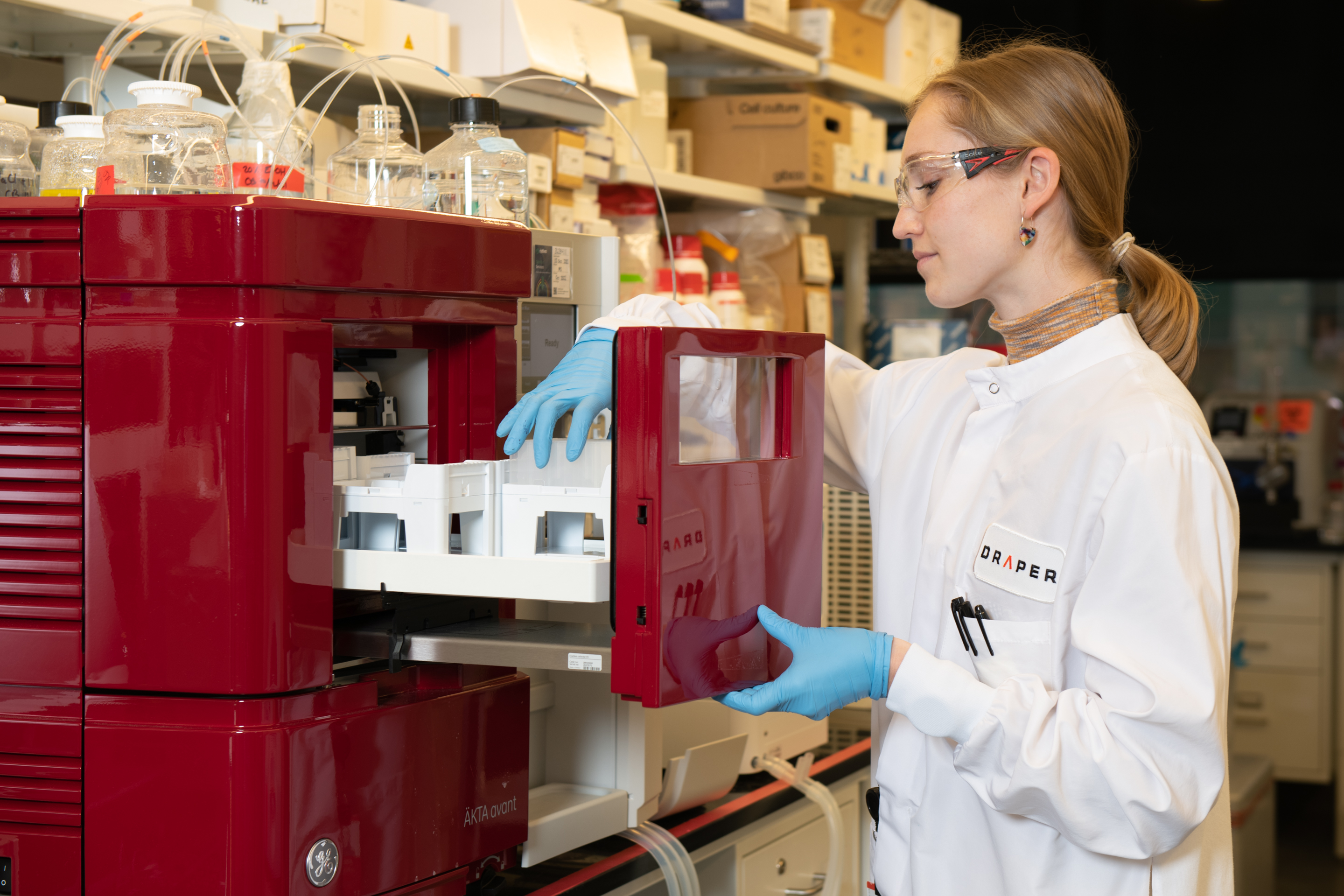
- Engineered organism detection (e.g., IARPA’s FELIX program)
- Pathogen Surveillance (e.g., DARPA’s DIGET program)
- Precision synthesis of chemical and nanomaterials
State-of-the-art Capabilities
At Draper, we offer some of the most advanced capabilities in the field of synthetic biology, including
- Machine learning-guided bioinformatics
- Synthetic protein design
- Multi-fragment DNA assembly
- Custom electroporation systems
- Continuous cell processing
Accelerating Delivery of Functional Solutions and Field-ready Prototypes
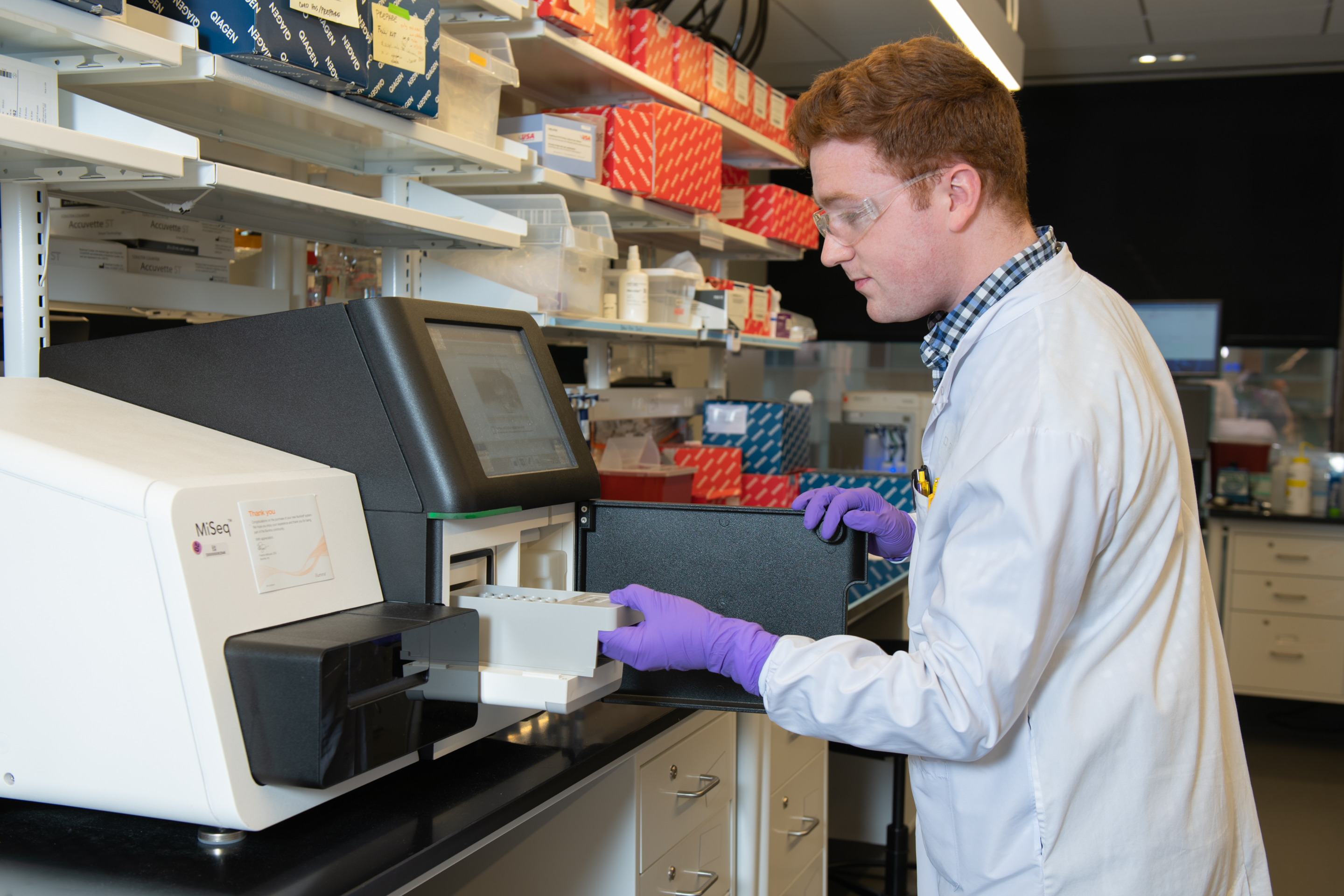
Our approach leverages the design-build-test cycle, with a strong foundation in computational modeling, to deliver functional biological solutions.
By combining engineered biological solutions with existing platforms—microfluidics, optics, space and other deployable regimes—we can accelerate advancement of our innovative solutions toward field-ready prototypes.
Related Solutions
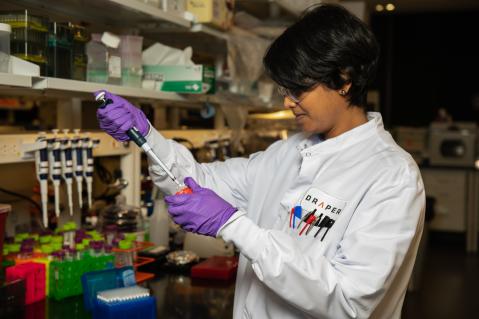
Detecting GMOs
Our miniaturized microarray in conjunction with the downstream pipeline can identify a genetically engineered microbe within a sample containing thousands of natural organisms.
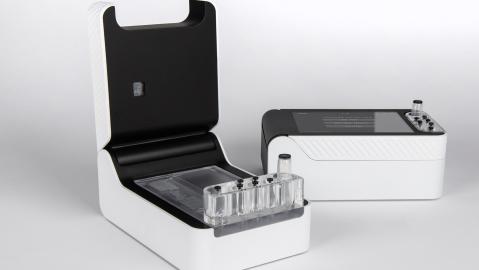
Biothreat and Pathogen Detection
Engineering portable technologies to detect dangerous pathogens within minutes.

